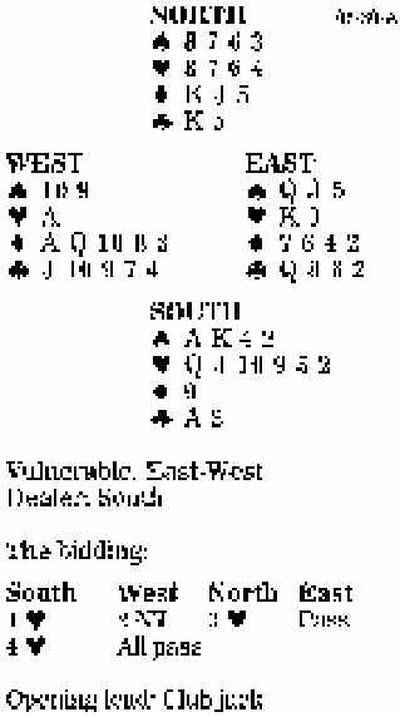Bridge

Many expert players are strong advocates of the Unusual Two-No-Trump convention – they like their opponents to employ it. Here is why. On the auction set out below, South reached four hearts, aware that West had at least five cards in each minor. (North’s three-heart bid showed less than a limit raise, by the way. Had he held more, he would have cue-bid one of the opponent’s suits.)
On West’s lead of the club jack, it looked as if there were four inescapable losers — two top trumps, the diamond ace and a spade. However, declarer saw one faint glimmer of hope.
If West held a singleton trump honor and was 5-5 in the minors, he must hold a doubleton spade. South won the lead in dummy with the club king, cashed his club ace, then took the ace and king of spades. To his relief, West followed. Next he played his diamond toward dummy’s king. West took his ace, but was now endplayed.
He could cash the heart ace, but then had to play either a club or a diamond. On a club return, declarer would have pitched one spade from hand via the ruff and sluff, and the other on the diamond king, so West did his best by returning a small diamond. However, declarer finessed dummy’s jack, then cashed the king, discarding both his losing spades. Now he had only to lose a trick to the heart king.
Bid with the aces
South holds:
| •8 7 6 3 | |
| •8 7 6 4 | |
| •K J 5 | |
| •K 5 |
| South | West | North | East |
| 1 • | Pass | ||
| 2 • | Pass | 3 • | Pass |
| ? |
Answer: Bid four hearts rather than three hearts. Partner has made a help-suit game-try, asking you to look at your clubs. His holding is typically three or four cards to one top honor, so your doubleton club honor, together with your fourth trump, more than makes up for your minimum hand.